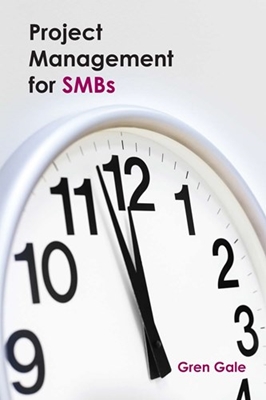Adapt your processes to remote work and document them
The first step to increase remote work productivity is to understand how you’re going to work. This is time consuming and an initial overhead but it will streamline inefficient processes that you’ve probably lived with for decades, reduce the dependence on individuals, bring new staff up to speed faster and facilitate continuous improvement in how you work. There are a number of ways of achieving this, but I’d recommend looking at using Lean Six-sigma as a means of both documenting and optimising processes. It’s relatively inexpensive to train staff in Lean Six-Sigma – see our review of GreyCampus Lean-Six-sigma training.
Build a Knowledge Base
One of the key requirements in setting a company up for successful remote work is to build a knowledge base. Most organisations of course already have a knowledge base, it’s Chloe in accounts, Joe in IT, Amit in Marketing and so on. This just about works in an office environment but has always represented bad practice borne of lazy management and poor control of risk.
In remote work, you can no longer depend on being able to walk down the corridor and ask Chloe or Joe a question, so it’s important to have a centralised database of knowledge – a knowledge base. This lowers risk and dependency on individuals, makes it easier for new employees to get up to speed and provides a consistency of response to customers. Have a look at our review of the best knowledge bases for remote work.
Change the way you communicate
The least productive feature of office working is the meeting culture. As I once saw scribbled on a white board in a meeting room ‘Why work when you can go to a meeting’. If you really want to destroy your remote work productivity then do what many companies have and transfer this culture into people’s homes. Remote work offers the unfortunate opportunity to run back-to-back meetings all day with no time wasted walking between meeting rooms. By the end of the day your head throbs, your ears are hot from hours of wearing a headset and your brain has gone to mush. I can’t stress this enough….this culture is bad and needs to stop. If you want to develop successful remote work then remote workers need to make more use of asynchronous communication – text and video messaging – to get to the point where shorter, less frequent meetings are used to resolve the big issues and make final agreements.
If you’re brave enough to take a completely different approach then take a look at Meetter who have gone back to first principles and devised a totally different approach to meetings. Meetter really works, increases productivity and saves wasted time – we love it – take a look and try it out.
Emphasise the human connection
This is something all good businesses are doing already. You must hold weekly 1:1s with your direct reports. These are sacrosanct, don’t delay or cancel them. You must hold monthly all staff meetings and make these meetings as interactive as possible.
Get information out there. A lot of time and effort can go into drafting and re-drafting written updates so managers need to make use of tools which allow you to produce short videos quickly and easily.
You must thank people and make sure their efforts never go unnoticed. Silent hero awards at your monthly all staff meetings are good but also think about sending out the odd bottle of wine or box of chocolates to say thank you. Make people feel valued and trusted and give them clear goals as to what is expected of them.
Workforce engagement and feedback tools are a great way of encouraging this activity. They facilitate regular feedback from employees, make sure 1:1’s happen and provide ways of thanking people. Have a look at our review of employee engagement tools for a fuller description of how these tools work and the best ones for remote work.
This isn’t revolutionary, it’s just good management. The real issue is that proximity in offices has been papering over the cracks and compensating for poor management for decades.
Encourage social interaction
Offices work socially because of the Propinquity Effect effect. The more people meet each other the easier it is to build relationships. You need to work a little harder to replicate this when people are remote. Try a coffee channel on your instant messaging app where people can meet to talk things over or try interest channels where people can discuss common pastimes. Slack uses Donut to organise random social meetups and Meetter use Small Talk. Try a wall of fame where people can post photos of themselves and stuff about what they do outside of work. Organise remote social activities. Organise working meet-ups. You might think this is icing on the cake, but encouraging remote staff to gel better as a team is a very good way to increase remote work productivity.
Organise Working Meet-Ups
Meet-ups are the best way to encourage social interaction and counter feelings of isolation and loneliness. The hybrid model for remote work is the one most people believe will be the future of the office – 3 or 4 days remote and one day in the office. I really don’t believe this can work unless you are very disciplined about it. The most likely outcome for hybrid work is people coming into offices to have remote meetings with people working remotely. I would get rid of pretty much all offices and substitute them with regular work based meet-ups in hired spaces. Staff then substitute daily commutes for a drive/train ride/flight to a monthly meet-up. Meet-ups are purposeful, diarised and can encourage creativity and you don’t end up with people going into offices one or two days per week to just host video conferences with people who are remote. See our article on the future of work – including a review of who is offering services to help you set up meet-ups.
Use the right remote work tools
There are a huge number of productivity, collaboration, project and task management, employee engagement, knowledgebase, meeting and communication tools on or coming on to the market. See our Reviews section.
Gren Gale is a consultant in Remote Work and Project Management and has been named as one of the top 19 Key Opinion Leaders globally in remote work in Who’s Who in Remote Working? He is author of the Remote Project Manager and Remote Work The New Normal.
Articles and reviews on this site are written from an unbiased viewpoint. We only review products which are relevant to Remote Work or Project Management and ones we believe in. Once this article on how to increase remote work productivity was written we looked to see if some of the links could generate affiliate income. It won’t make us rich but it helps pay the rent!








Great tips! Keep connection strong and motivation high!